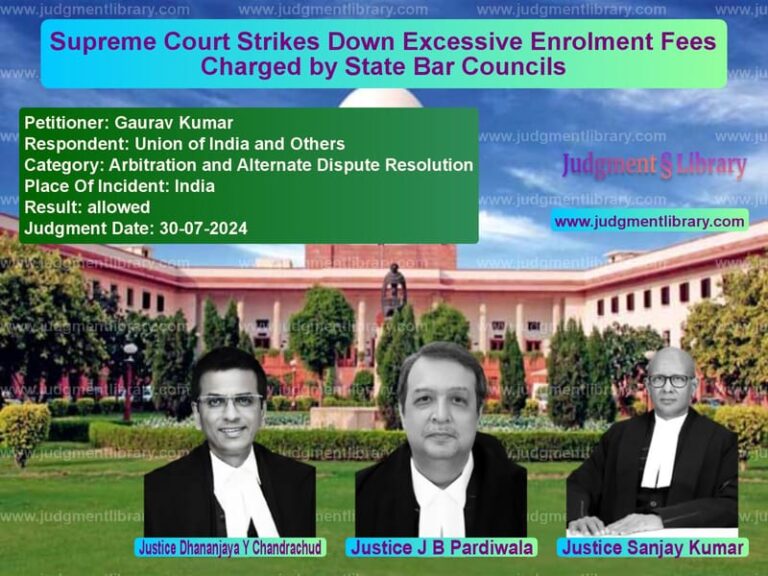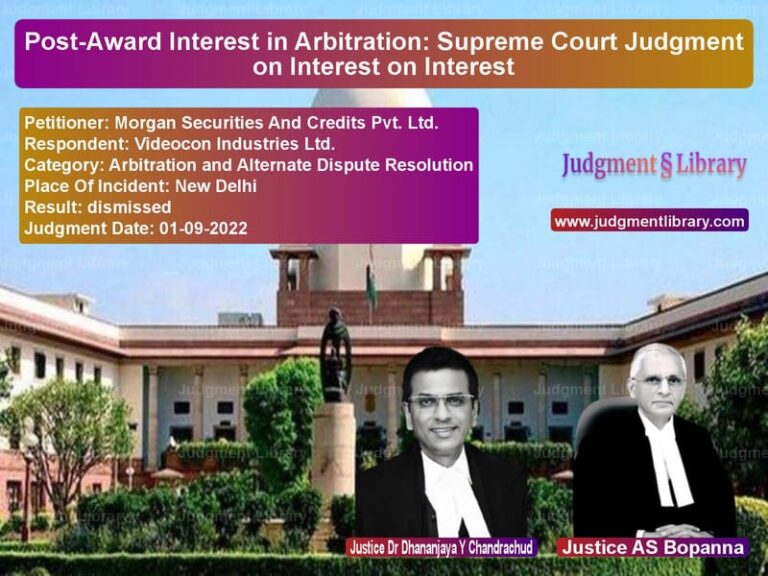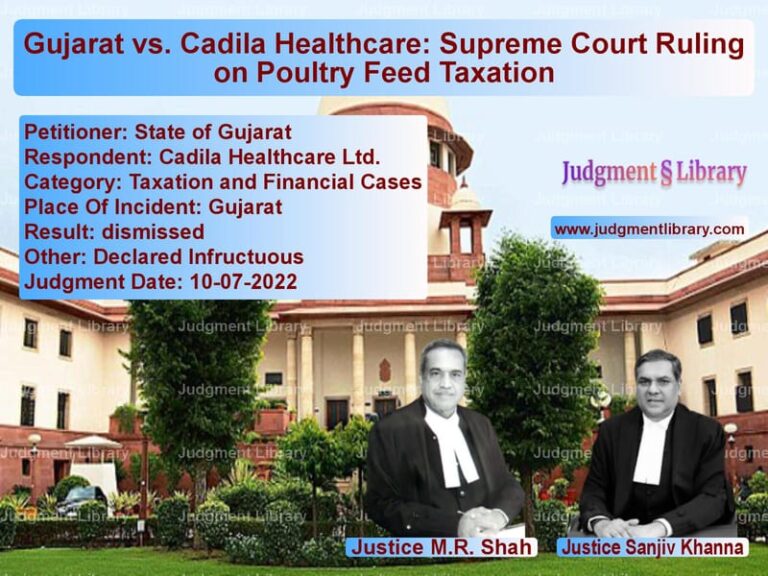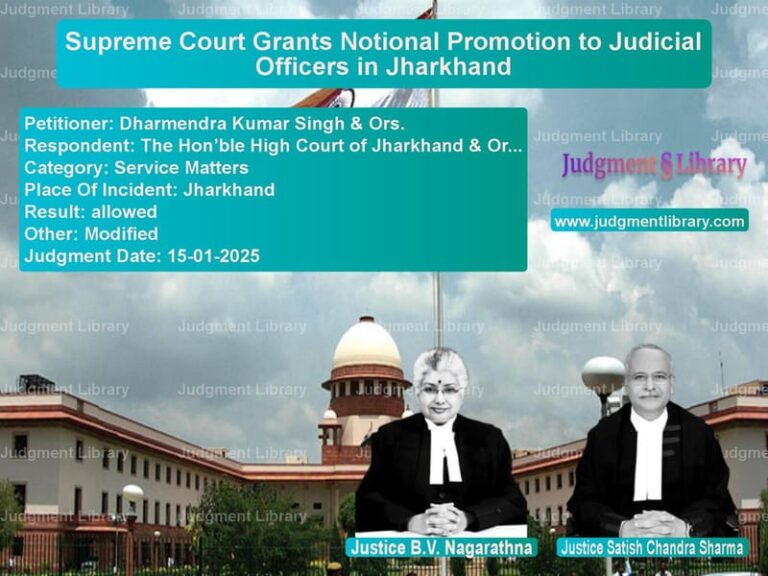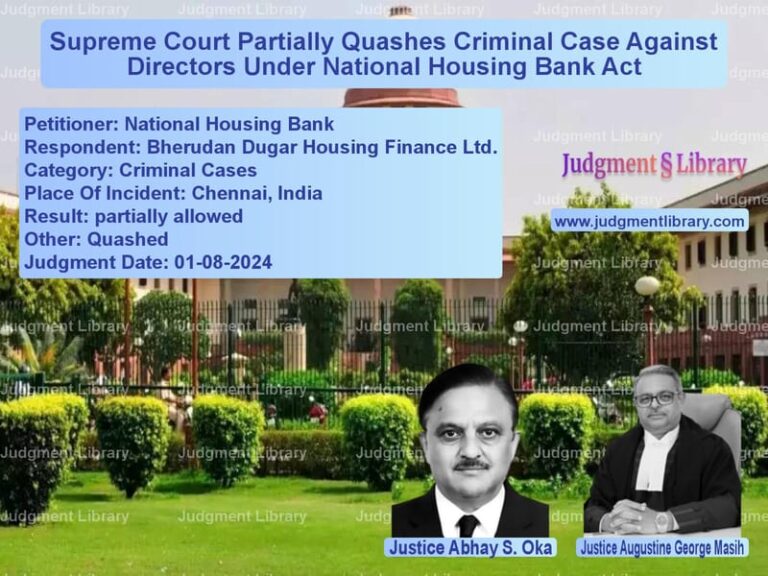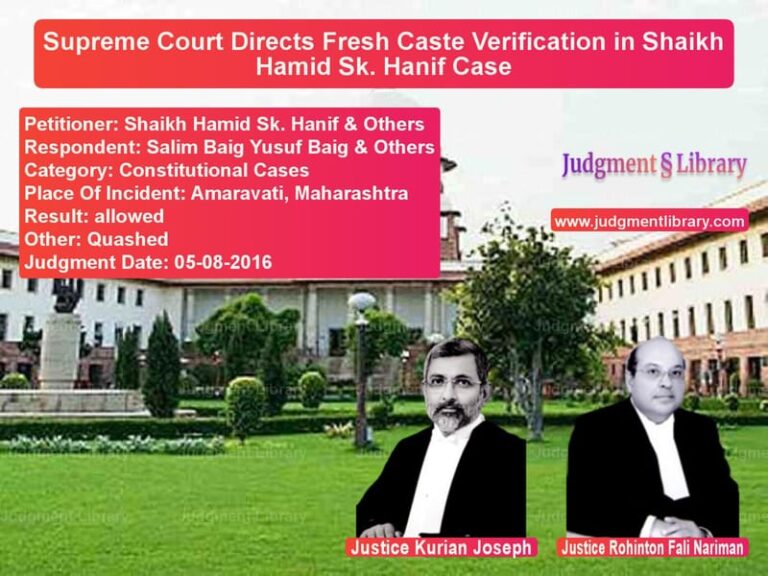Kerala Agricultural University Faces Legal Setback: Supreme Court Overturns Professor’s Termination
The legal dispute between Kerala Agricultural University and T.P. Murali revolved around the wrongful termination of the respondent’s services. The Supreme Court, in its judgment dated September 4, 2024, dismissed the Special Leave Petition filed by the University, thereby upholding the Kerala High Court’s decision to quash the termination order. This ruling underscored the importance of procedural compliance and fair treatment in employment-related matters.
The core issue in this case was whether Kerala Agricultural University had lawfully terminated the employment of T.P. Murali, who had taken a 20-year leave without allowance (LWA) to work abroad. The University terminated his services for allegedly failing to resume duty on time. However, the Supreme Court found that the termination process did not adhere to prescribed legal procedures, thereby rendering the decision invalid.
Background of the Case
The respondent, T.P. Murali, joined Kerala Agricultural University as an Assistant Professor on March 24, 1988. After serving for 11 years, he applied for and was granted LWA for a period of 20 years, spanning from September 5, 1999, to September 4, 2019. During this period, he took up employment at Community College in Pennsylvania, USA.
Upon the completion of his leave tenure, Murali was expected to rejoin his position at Kerala Agricultural University on September 5, 2019. However, he was unable to do so as he was still in the USA and allegedly suffering from serious health issues. He communicated his intention to resume duty via email but remained absent due to his health condition and the COVID-19 pandemic. His first opportunity to return to India came with the Vande Bharat repatriation flights in July 2020. Upon his return, he sought to resume duty, but the University denied his request and instead issued him a Memo of Charge on July 15, 2020, alleging unauthorized absence.
Legal Proceedings and Arguments
Petitioner’s (Kerala Agricultural University) Arguments
The University contended that:
- Murali had violated statutory service rules by not resuming duty immediately after his LWA expired.
- His reasons for delay, including health concerns and the COVID-19 pandemic, were not acceptable.
- Under Rule 24A and Clause 6 of Appendix XIIA of the Kerala Service Rules, an employee failing to return upon completion of 20 years of LWA must have their services terminated after following proper disciplinary procedures.
- A departmental inquiry had been conducted, which found Murali guilty of misconduct, leading to his termination.
Respondent’s (T.P. Murali) Arguments
Murali challenged his termination on the following grounds:
- His failure to rejoin on September 5, 2019, was due to legitimate health issues and travel restrictions caused by the COVID-19 pandemic.
- He had continuously communicated his willingness to rejoin duty through emails and other correspondences.
- The University failed to follow the proper procedure under Rule 15 of the Kerala Civil Services (Classification, Control, and Appeal) Rules, 1960, which required prior notice and an opportunity for a fair hearing before termination.
- The disciplinary inquiry conducted against him was flawed, as the University did not record a prima facie satisfaction before initiating the proceedings.
Supreme Court’s Observations
The Supreme Court examined the procedural lapses in the University’s actions and made the following key observations:
- The Kerala Service Rules and Civil Services (Classification, Control, and Appeal) Rules mandate that before initiating disciplinary proceedings, the authority must be satisfied that there is a prima facie case for action against the employee.
- The University failed to establish that it had recorded this prima facie satisfaction before appointing an inquiry committee and issuing the termination order.
- It is a fundamental principle of law that when a statute prescribes a specific procedure for taking action against an employee, the authority must strictly adhere to it. Any deviation from this procedure renders the action invalid.
- Murali’s health condition and COVID-19-related travel restrictions were legitimate grounds for his delayed return, further strengthening his case.
Final Judgment
In light of these observations, the Supreme Court upheld the Kerala High Court’s judgment and dismissed Kerala Agricultural University’s petition. The ruling emphasized that Murali’s termination was procedurally flawed and that he should have been given a fair opportunity to present his case.
The Supreme Court ruled:
“It is a cardinal principle of law that if a statute provides for doing a thing in a particular manner, then it should be done in that fashion only and not otherwise. Therefore, recording of satisfaction before holding a departmental inquiry was mandatory.”
Implications of the Judgment
This case highlights crucial legal principles related to employment law, particularly regarding the procedural fairness required in disciplinary actions. The Supreme Court’s ruling underscores that:
- Employers must adhere strictly to statutory procedures before taking adverse action against an employee.
- Failure to follow due process can lead to the nullification of termination orders, even if there are valid reasons for dismissal.
- Employees have the right to be heard and must not be penalized for circumstances beyond their control, such as medical emergencies or global crises like COVID-19.
The decision sets an important precedent for future employment-related disputes, reinforcing the need for fair and transparent disciplinary processes.
Petitioner Name: Kerala Agricultural University & Anr..Respondent Name: T.P. Murali @ Murali Thavara Panen & Anr..Judgment By: Justice Pamidighantam Sri Narasimha, Justice Pankaj Mithal.Place Of Incident: Kerala, India.Judgment Date: 04-09-2024.
Don’t miss out on the full details! Download the complete judgment in PDF format below and gain valuable insights instantly!
Download Judgment: kerala-agricultural-vs-t.p.-murali-@-murali-supreme-court-of-india-judgment-dated-04-09-2024.pdf
Directly Download Judgment: Directly download this Judgment
See all petitions in Employment Disputes
See all petitions in Termination Cases
See all petitions in Disciplinary Proceedings
See all petitions in Judgment by P.S. Narasimha
See all petitions in Judgment by Pankaj Mithal
See all petitions in dismissed
See all petitions in Quashed
See all petitions in supreme court of India judgments September 2024
See all petitions in 2024 judgments
See all posts in Service Matters Category
See all allowed petitions in Service Matters Category
See all Dismissed petitions in Service Matters Category
See all partially allowed petitions in Service Matters Category


